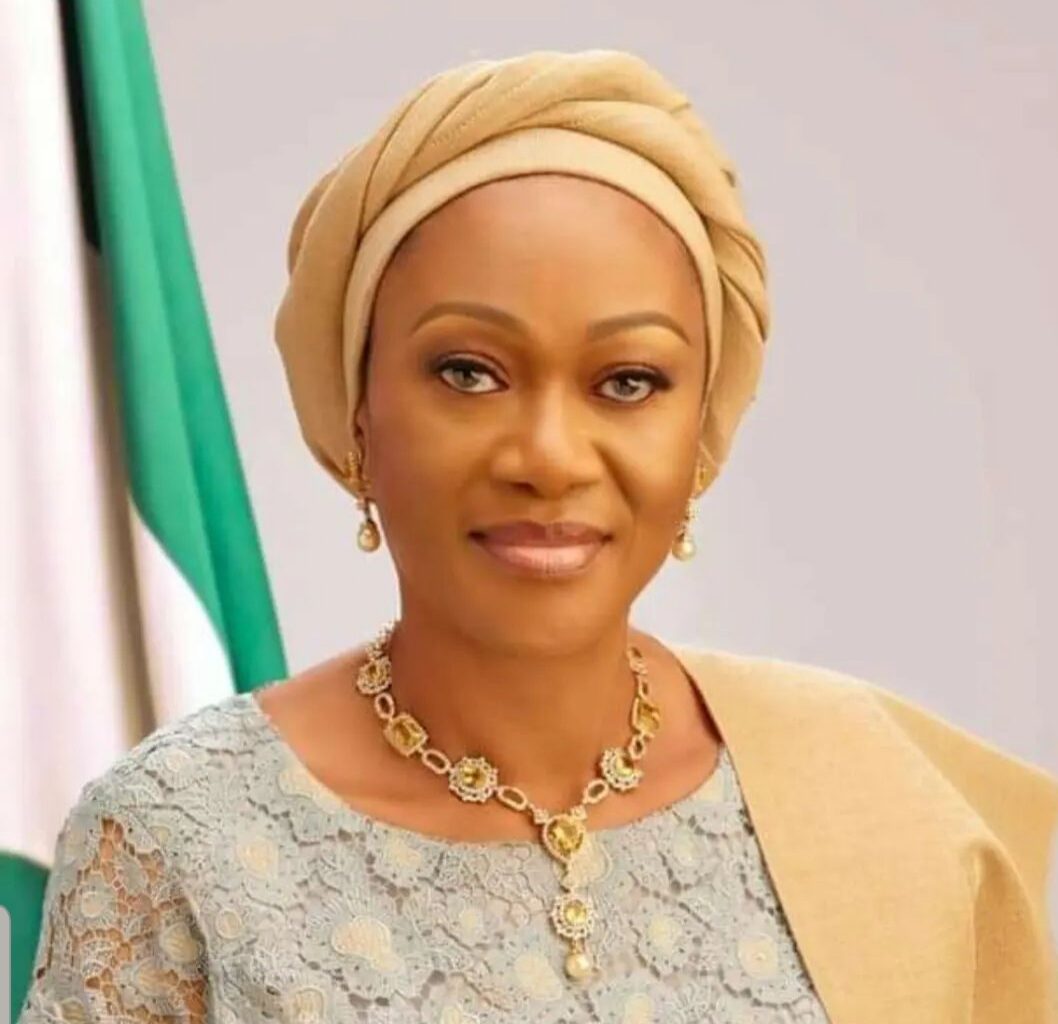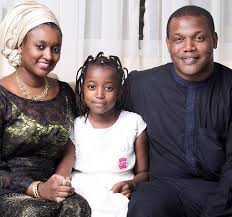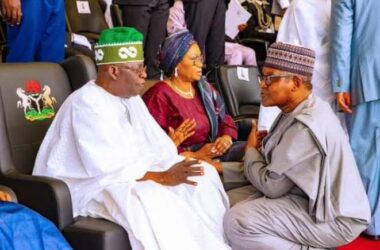Before she became Nigeria’s First Lady on May 29, 2023, Senator (Mrs.) Oluremi Tinubu, CON, wife of President Bola Ahmed Tinubu, was the First Lady of Lagos State between May 1999 and May 2007. In that role, residents of the state saw her exercise what might be described as ‘soft power‘ – or what Nigerians now refer to as the power of ‘the other room’ ( to borrow ex-President Muhammadu Buhari’s infamous expression). However, she was no ordinary political spouse, let alone a mere courtesan, as those who have had the privileged of having crossed paths with her can testify. On the contrary, she brought to the role an understated charisma that provided a welcome contrast to, but without necessarily detracting from, her husband’s larger-than-life (some might even say, flamboyant) persona.
Four years after she left the First Lady’s role, she became a full fledged political player in her own right, following her election in 2011 to the Nigerian Senate, representing the Lagos Central Senatorial District on the platform of the All Progressives Congress (APC). In doing so, Mrs. Tinubu acquired the ‘hard power’ that comes with elected office – to add to the soft power she had learned to wield so masterfully. This quintessential combination has had a tremendous positive impact on the people, communities and interests that have so far been availed of her service.
Whichever form of power she finds herself exercising in the coming days, however, Senator Tinubu has remained true to her essential self. And that essential self preceded her association with her famous husband and her entry into his political orbit. Born on the 21st of September 1960, the future Mrs. Tinubu began her educational career at Our Lady of Apostles Secondary School in Ijebu-Ode, Ogun State, where she obtained her West African Senior Secondary School Certificate (WASC, as it then was) in 1979, after which she received a National Certificate of Education (NCE) in Botany and Zoology from the Adeyemi College of Education, before going on to receive a B.S. degree in Education from the University of Ife. She is also a recipient of a Post Graduate Diploma from The Redeemed Christian Bible College in 2010.
That last certification is especially significant, in that it was her entree into another aspect of service that would define her public role as much as (and probably in future, much more than) her career in politics. Though married to a nominal Muslim, Mrs. Tinubu has not only been upfront about her Christian faith, but also willing to be of service in the Lord’s vineyard, to the point where, today, she is an ordained pastor in the ranks of one of Nigeria’s fastest-growing Pentecostal denominations, the Redeemed Christian Church of God (RCCG).
It is this combination of influences and experiences – first, as a front-row witness to her husband’s travails as a pro-democracy activist and an advocate of good governance; a First Lady trying to complement her husband’s duties as a political leader on the one hand, while striking a balance with the needs of her immediate and extended family on the other; a political leader herself with a mandate and commitment to ensuring the welfare, security and happiness of her constituents; and a servant in God’s house, responsible for His flock and keeping to His charge as set down in the book of Proverbs 27: 23.
But of greater consequence than any of the above influences is the internal dynamic of the woman. Part a product of her upbringing and part a product of her faith and desire to be of use in both the Body of Christ and the body politic, Remi Tinubu’s impetus for service comes from a deeper place, a place that sees her life and privileged position as not just as a blessing (for which she is immensely grateful) but also as a burden which can only be lifted by the giving of oneself to the needs of others. One of her signature projects as First Lady of Lagos State was an example of this complex understanding of her essence. The New Era Foundation was dedicated to establishing centers for all-round development of young people and to promote public awareness on environmental health and community service. Another signature project was borne out of her firm belief in investing in human capital development, especially as it concerns women and young people. The Youth Empowerment and Skill Acquisition Scheme, for example,collaborated at various with other groups such as the Good Boys and Girls Empowerment Scheme (GBGES) to empower over 1170 beneficiaries. At another time, over160 young people were trained on various skills and received start up kits and capital of about N40,000 each.
As a Senator she, of course, had broader concerns in respect to which she sponsored, co-sppnsored, or supported bills, led or served on committees, and exercised oversight functions. Issues such as insecurity (in respect of which she worked with like-minded colleagues on a bill for the establishment of state police); the revitalisation of dying state-owned owned institutions like the Nigerian Postal Service (NIPOST), among others, marked her engagement with the overall life of the country. But issues concerning women and young people were never far from her heart.
Her impact and influence transcend her performance in law-making, or the provision of materials or succour to her constituents. When it comes to governance, the little things – the symbolic gesture, the show of empathy and solidarity, the cheerleading for good causes that boost morale – also go a long way. And Mrs. Tinubu has shown over the years that she understands the nuances of such intangible engagements and how far they can go in fostering a sense of community and fellowship, which in turn can catalyse great achievements on both individual and collective levels. Even more impactful is her constant push for unity of purpose and creative synergy among individuals and groups (including non-governmental organisations, intergovernmental bodies and faith-based organisations) working to empower women and advance their rights in society. As First Lady and Senator, Tinubu has been instrumental to the normalisation, if you like, of ‘Coalitions’ of NGOs with similar mandates, a state of affairs which has given that community, and indeed the social investment ecosystem, a stronger voice at the table of advocacy, decision-making and policy implementation.
As a politician, too, she has been a moderating voice in the national discourse. Amidst the fractious nature of politics – especially the Nigerian ‘rough-house’ variety, which is, at best, a shouting-match full of sound and fury, and at worst a clash of weapons – Mrs. Tinubu tries, in her interactions and interventions, to throw light rather than generate more heat onto an already heated polity. Though a stanch member of the APC, she values the non-partisanship that makes ultimate progress possible (whether in the crafting of legislation or in bringing about inclusive growth and development in our diverse country), rather than the partisan narrative that is based on narrow calculation for electoral advantage. It is a stance that our male political players will do well to emulate. They must abandon their divisive and abusive rhetoric and their tendency to act out of selfish interest and their never-ending egocentric calculations, and embrace Mrs. Tinubu’s politics of higher purpose, a politics that puts people, rather than just votes, at the centre of governance.
To her admirers, Mrs. Remi Tinubu’s two-tiered engagement with society brings to mind the remarkable career of Hillary Clinton, the former US First Lady who went on to become a US Senator and even made history as the first female presidential candidate of one of the two major political parties in that country. She also served as US Secretary of State (her country’s highest diplomatic position) under Pres. Barack Obama. Beyond her transition to power, Clinton embodied some of the finest ideals attached to the role during the tenure of her husband, Pres. Bill Clinton. Indeed, she came to define the role somewhat – a remarkable feat in the very country which invented the role in the first place. Although the American First Lady ‘s role has never been codified or officially defined by law, she figures prominently in the political and social life of the country. Since the 1900s, the role of First Lady has changed considerably; it has now come to include involvement in political campaigns, management of the presidential residence, championship of social causes, and representation of the President or Governor (in the case of a sub-national entity) at official and ceremonial occasions.
In Nigeria, the role was brought into public reckoning by the late Mrs. Mariam Babangida (wife of former military President Ibrahim Babangida) who brought a combination of physical glamour, understated elegance and a strong sense of social commitment to the role – in a manner that was not only unprecedented in the history of the nation, but led to the popularisation of the role among political spouses – down to subnational and even the grassroots levels. Her successors in the office – Miriam Abacha, Justice Fati Abubakar, Stella Obasanjo (of blessed memory), Turai Yar’Adua, Patience Jonathan and Aisha Buhari – also went a long way to further cement on Mrs. Babangida’s legacy in their respective ways.
Now that Mrs. Tinubu has joined that short but distinguished list following her recent return to the First Lady’s role, her ardent supporters will be heartened by the impact she created during her time as the Lagos State Governor’s wife. Already, from her perch in the Aso Rock villa in Abuja, she has made her priorities clear to all prospective partners and beneficiaries in her quest for the empowerment of women and young people. These causes, she said recently, include: a more robust involvement of women in the law-making process, especially at the legislative level, and their increased participation in the economy; ending gender-based violence; as well as child labour and the scourge of out-of-school children. In reiterating the ways in which the Tinubu Administration’s slogan of ‘Renewed Hope’ applies to vulnerable groups in the country, the First Lady urges women to stop looking down on their prospects, to develop capacity and, above all, to UNITE in a bid to drive change.
It is not only her supporters that are happy about her return to First Lady-ship (albeit on a higher pedestal this time around), but also a number of influential stakeholders – such as the organizations who have, over the years, showered her with a plethora of awards, honours and recognitions. She was, for example, a proud recipient of the Eko Excellence Awards in 2019 (along with current Lagos Governor Babajide Sanwo-Olu and the business tycoon Tony Elumelu and a host of other trailblazers). In 2021 she was recognized as the most impactful female Nigerian Senator at The Guardian Newspaper-organized International Women’s Day Summit. In addition to her being conferred with the Nigerian national honour of Commander of the Order of the Niger (CON) by former President Buhari, she also holds Ghana’s Noble International Award for Leadership (presented in 2004), and the Gambian Diamond Award for Immense Contribution to the Emancipation of People from Poverty (given in 2005). Back home, she is also the Grand Matron of the Committee of Wives of Lagos State Officials (COWLSO), an organisation she initiated during her days in Alausa to demonstrate her advocacy for solidarity among women of that cadre.
In a world increasingly being defined by more robust investments in social capital, as well as more robust partnerships between groups united by common objectives, the example of Nigeria’s new First Lady should be an added boost – as well as a source of inspiration and a guaranteed pillar of support if and when needed. Women and young people in particular, and the groups (or coalitions of groups) that represent them at various levels would, henceforth, not be too far wrong when beat their collective chest and say they have a friend in high places – in the person of Sen. Oluremi Tinubu, CON.
And for those in the political class and other stakeholders – especially those who yearn for the evolution of our nation into a land of justice, equity and fairplay, a land of distinction populated by individuals and communities of excellence, a land in which diversity is a strength and source of partnerships and coalitions rather than conflict, a land where political engagement is driven, not by narrow calculations, but by a sense of shared responsibility and shared benefits – Mrs. Tinubu could be a lodestar, if we let her.






